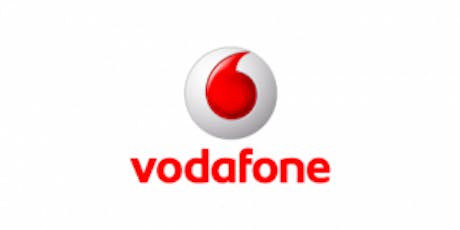
Single stock alternatives
Here, I will make the case for why the broader European indices should be avoided. But there are still solid values when looking at individual stocks in Europe.
One clear choice is Vodafone Group Plc (ADR) (NASDAQ:VOD), which is the world’s second biggest telecom company (in terms of subscribers and revenue). The stock has seen a rally of 17% year-to-date, but is still holding below its 52 week high of $30.80. With a market cap of $144 billion, investor sentiment behind Vodafone Group Plc (ADR) (NASDAQ:VOD) remains positive, driven largely by negotiations with Verizon to buy 45% of the European company. With reports that Verizon might even opt to purchase the entire company, we are likely to continue seeing investor focus center on Vodafone Group Plc (ADR) (NASDAQ:VOD) throughout the year. Additional positives come with the stock’s impressive yield of 5.1%.
In the pharmaceutical space, GlaxoSmithKline plc (ADR) (NYSE:GSK), remains positioned for sustainable gains. The British multinational is the fourth-largest pharmaceutical company in the world (in terms of prescription drug sales). Additional positives come with the company’s massive consumer healthcare division, which manufactures and sells nutritional and oral healthcare products, beverages and over-the-counter products like Boost and Sensodyne. Year-to-date, the stock has rallied 22% but still trades with a P/E of 20.9. The yield comes in at a strong 4.6%, and stock oracle Warren Buffett’sowns more than 1.5 million shares.
In the beverage space, Anheuser-Busch InBev NV (ADR) (NYSE:BUD) is a strong choice as well. The multinational is based in Belgium and is the largest beer brewer in the world (the company’s global market share is roughly 25%). The company is the third biggest fast-moving consumer goods outfit, with 14 different brands that are well-known to consumers. This list includes iconic names like Corona, Beck, and Budweiser, which contribute $2.34 billion to quarterly profits. The stock yields a stable 2.29%.
Six Straight Quarters of Negative Growth
With the region’s benchmark stock indices (the German DAX, and French CAC 40) all trading near their highs for the year, mounting evidence suggests we are building toward a yearly top in these indices. The combination of weak fundamentals and excessive price valuations creates a scenario where downside risk significantly outweighs upside potential. For those looking to remain invested in stock markets, growth rates in other regions of the world are much more supportive of long-term gains.
The latest economic figures show that Eurozone growth rates for the first quarter of this year dropped by -0.2% (relative to last quarter) and -1% (on a yearly basis). These GDP contractions show that recessionary conditions have now been in place for six straight quarters, beginning near the end of 2011. From a global perspective, these numbers are discouraging given the 2.5% GDP growth posted in the U.S. and the 3.5% increase seen in Japan during the same period. Japan, in particular, has well-documented problems generating momentum in these types of figures, so the negative contrast here is even more surprising.
Most of the weakness is focused in Southern Europe, but declines in output were seen in all member nations except Germany (which did manage to post negligible growth at +0.1%). The ECB’s projections for 2013 suggest that the Eurozone will return to positive territory before the end of the year. But, at this stage, the broader trends are clearly negative. With interest rates already at historic lows (0.5%), there is limited leeway for the ECB to continue easing its monetary policy, and this removes a potentially supportive factor that would otherwise add to gains in Europe’s benchmark stock indices.
Drops in Consumer, Business Confidence Surveys
Early precursors of the Eurozone recession (the region’s longest recession since World War II) could be seen in sharp increases in unemployment and declines in confidence surveys of both businesses and consumers. One example can be seen in Spain, where national unemployment rates have reached as high as 27%. Without an employed consumer base, it becomes increasingly difficult for businesses to improve in terms of earnings performance. The Spanish economy alone shrank by 2% in the first quarter, and the combination of all these factors makes it very difficult to justify elevated price levels in the IBEX 35 (which remain near their highs for the year).
Avoid Europe’s Heart
When looking at the global economy on a relative basis, European stocks are teetering on the edge of a cliff. Stimulus programs in the U.S., U.K., and Japan have has a much more pronounced (and positive) influence on the labor markets and overall output growth in these countries. First quarter GDP performance in the Eurozone does not indicate an absolute freefall in the economy but is negative enough to justify concerns over stock values that remain elevated using a longer term perspective. Without the added positive of additional interest rate decreases, investors long these markets are likely to start taking profits. Look for medium term weakness in the IBEX, DAX, and CAC going forward, as limited growth indicates disappointing corporate performance in the coming quarters.
The article German, French Indices Vulnerable at Elevated Levels originally appeared on Fool.com and is written by Richard Cox.
Richard Cox has no position in any stocks mentioned. The Motley Fool recommends GlaxoSmithKline and Vodafone Group. Richard is a member of The Motley Fool Blog Network — entries represent the personal opinion of the blogger and are not formally edited.
Copyright © 1995 – 2013 The Motley Fool, LLC. All rights reserved. The Motley Fool has a disclosure policy.